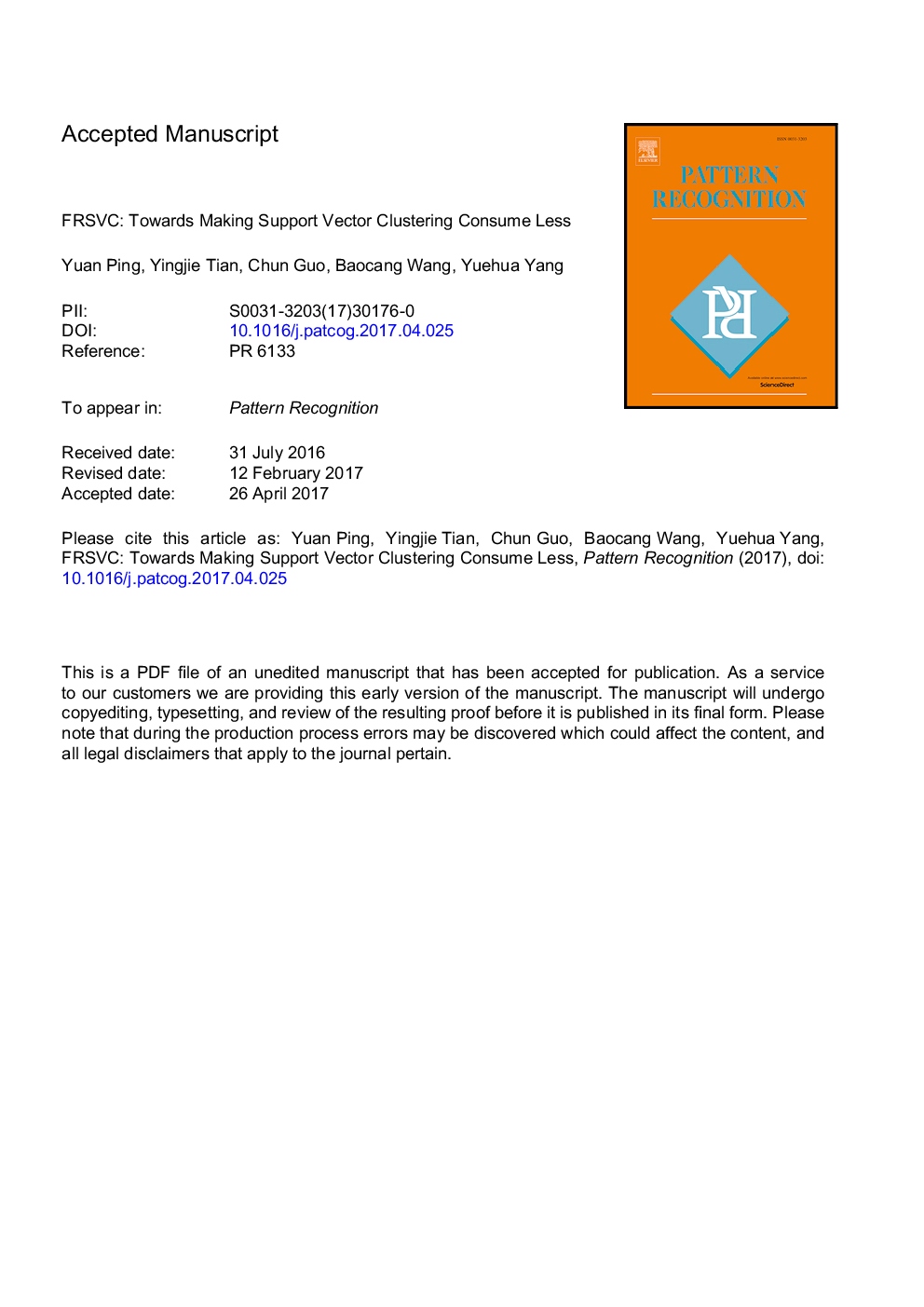| Article ID | Journal | Published Year | Pages | File Type |
|---|---|---|---|---|
| 4969677 | Pattern Recognition | 2017 | 36 Pages |
Abstract
In spite of with great advantage of discovering arbitrary shapes of clusters, support vector clustering (SVC) is frustrated by large-scale data, especially on resource limited platform. It is due to pricey storage and computation consumptions from solving dual problem and labeling clusters upon the pre-computed kernel matrix and sampling point pairs, respectively. Towards on it, we first present a dual coordinate descent method to reformulate the solver that leads to a flexible training phase carried out on any runtime platform with/without sufficient memory. Then, a novel labeling phase who does connectivity analysis between two nearest neighboring decomposed convex hulls referring to clusters is proposed, in which a new designed strategy namely sample once connected checking first tries to reduces the scope of sampling analysis. By integrating them together, a faster and reformulated SVC (FRSVC) is created with less consumption achieved according to comparative analysis of time and space complexities. Furthermore, experimental results confirm a significant improvement on flexibility of selective efficiency without losing accuracy, with which a balance can be easily reached on the basis of resources a platform equipped.
Related Topics
Physical Sciences and Engineering
Computer Science
Computer Vision and Pattern Recognition
Authors
Yuan Ping, Yingjie Tian, Chun Guo, Baocang Wang, Yuehua Yang,
